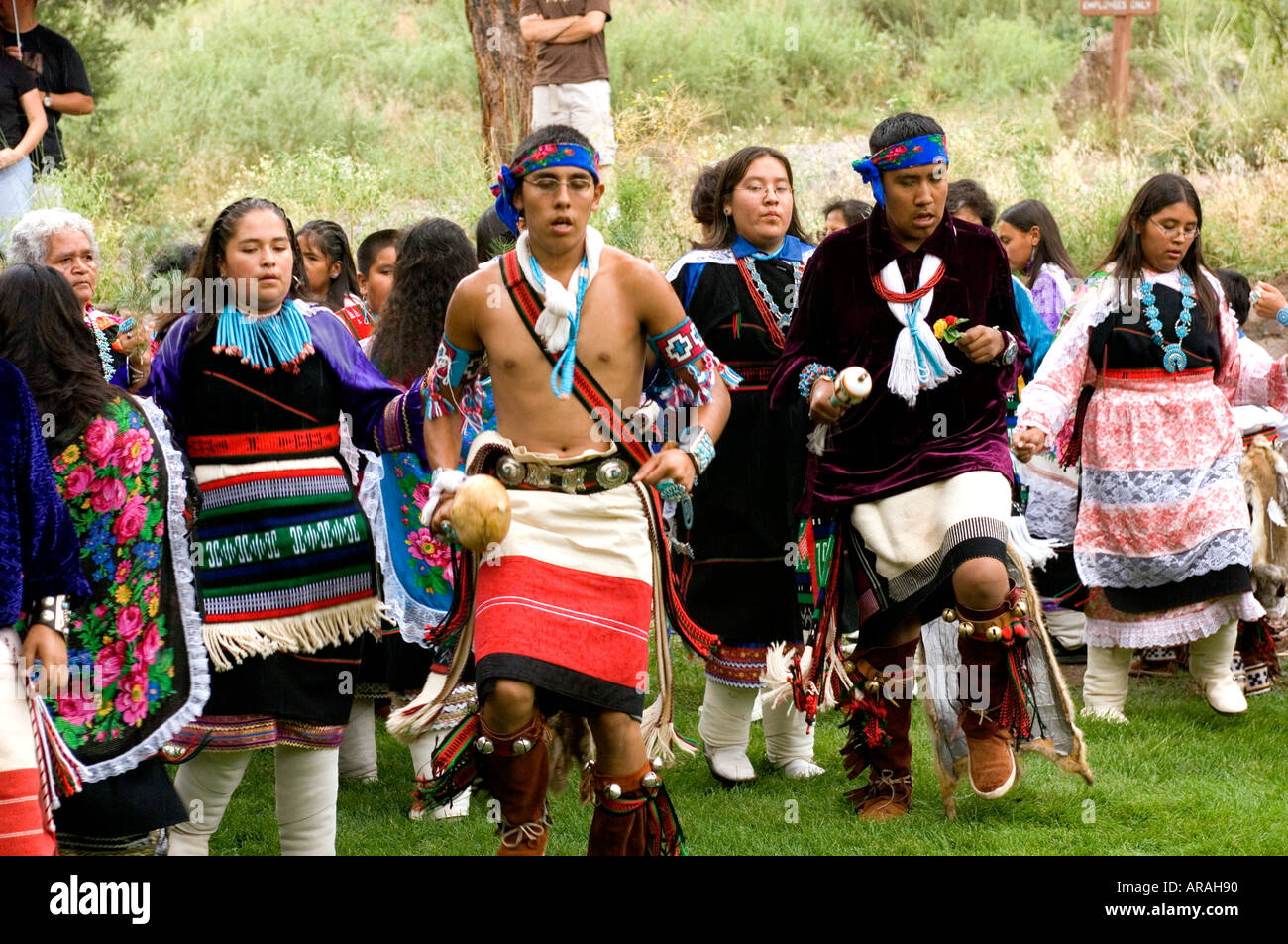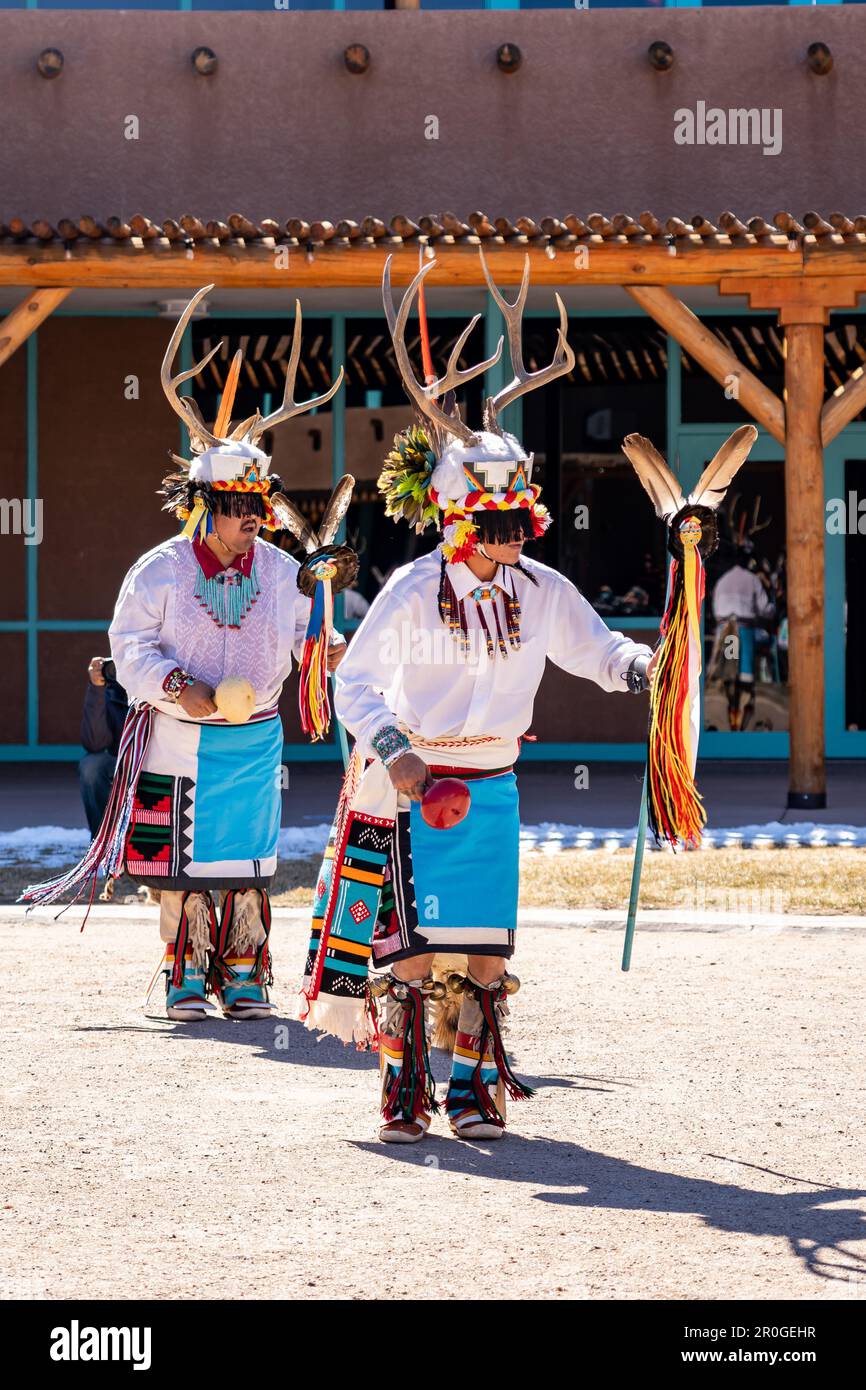
The Enduring Heart of Zuni: Where Sacred Trust Guides Governance
Zuni Pueblo, New Mexico – In the vast, sun-drenched landscape of western New Mexico, nestled amidst ancient mesas and the winding Zuni River, lies Itiwana – the Middle Place. To the Zuni people, this is more than just a geographical location; it is the spiritual and cultural heart of their universe, a concept that profoundly shapes every facet of their lives, particularly their unique and enduring system of governance. For over 13,000 years, the Zuni have inhabited this land, cultivating a society where the spiritual and the secular are not merely intertwined but are fundamentally inseparable, creating a model of leadership that prioritizes collective harmony, ancestral wisdom, and a sacred trust with the land.
In a world increasingly defined by rapid change and often fractious political systems, the Zuni Pueblo stands as a testament to the power of continuity. Their governance, a sophisticated tapestry woven from ancient traditions, spiritual mandates, and adaptive strategies, offers a compelling counter-narrative to Western models of democracy and statecraft. It is a system built not on individual rights as the primary focus, but on the well-being of the collective, guided by an unwavering commitment to their unique cosmology.

A History Forged in Resilience
The history of the Zuni people is one of profound resilience. Their ancestors, the Anasazi, built vast cliff dwellings and complex agricultural societies across the Southwest. While many ancient cultures vanished or dispersed, the Zuni endured, adapting to the arrival of Spanish conquistadors in the 16th century, Mexican rule, and finally, the incorporation into the United States. Each encounter brought challenges – disease, forced conversions, land appropriation, and attempts to dismantle their cultural identity. Yet, the Zuni maintained their core beliefs and, crucially, their governance structure, often by cloaking their sacred practices from outsiders.
"Our ancestors faced immense pressures to abandon their ways," explains a Zuni elder, speaking on condition of anonymity to respect cultural protocols. "But the teachings of our Kakimana (religious leaders) and the strength of our community kept us whole. Our governance is not just about rules; it’s about survival, about ensuring the continuity of our people and our sacred duties."
This historical continuity is key to understanding Zuni governance today. Unlike many Indigenous nations whose traditional systems were forcibly replaced by externally imposed structures, the Zuni managed to integrate elements of Western administration while retaining the spiritual authority at the apex of their decision-making.
The Sacred Mandate: Rule by the Kakimana
At the very core of Zuni governance lies the spiritual authority of the Kakimana, the various religious societies and priestly orders who serve as the ultimate guardians of Zuni life. These include the Rain Priests, the Priests of the Bow, and other ceremonial leaders, each holding specific responsibilities for the spiritual health and well-being of the community. Their authority is not derived from elections or secular power, but from a profound understanding of Zuni cosmology, ceremonial cycles, and the intricate relationship between the people, their ancestors, and the natural world.
The Kakimana are not involved in the day-to-day administration of the Pueblo, but their wisdom and spiritual guidance permeate every significant decision. They are the keepers of ancient knowledge, the interpreters of prophecies, and the ones responsible for conducting the complex cycle of ceremonies that ensure harmony, good harvests, and the balance of the universe. Their pronouncements, often delivered through consensus after extensive deliberation and prayer, carry immense weight and are considered paramount.
"You cannot separate our governance from our religion," says Dr. Jonathan Nez, a former Navajo Nation President who has observed Zuni governance closely. "For the Zuni, the land is sacred, the ceremonies are sacred, and the leaders who facilitate these connections are profoundly respected. It’s a holistic approach that many modern societies have lost."

This model contrasts sharply with Western concepts of "separation of church and state." For the Zuni, the state is the church, in a sense, as the ultimate authority rests with those dedicated to spiritual matters. The secular government serves to implement the directives and principles established by the spiritual leaders, ensuring that all actions align with the sacred path.
The Secular Arm: The Governor and Tribal Council
While the Kakimana provide the spiritual foundation, the practical administration of the Zuni Pueblo falls to the secular government, headed by the Governor and the Tribal Council. The Governor, elected by the community for a two-year term, serves as the chief executive officer, representing the Pueblo in external relations, overseeing tribal departments, and managing day-to-day affairs. The Tribal Council, typically composed of six members, works alongside the Governor to formulate policies, manage resources, and address community needs.
However, even the selection of the Governor and Council is deeply influenced by the spiritual realm. While elections are held, the candidates are often chosen through a process of community consensus, with significant input and vetting by the Kakimana. It is not uncommon for the spiritual leaders to identify individuals deemed to possess the necessary wisdom, integrity, and dedication to the Zuni way of life. The Governor’s role, therefore, is not to dictate, but to facilitate and implement the collective will, always mindful of the spiritual guidance provided by the Kakimana.
"The Governor’s office is a place of service," explains an official from the Zuni tribal administration. "We deal with the external world – federal agencies, economic development, education. But every major decision, every long-term plan, must be in harmony with the teachings of our spiritual leaders. They are our compass."
This dual structure – with spiritual authority as the ultimate guide and secular leadership as the implementers – allows the Zuni to navigate the complexities of modern life while safeguarding their core identity. It provides a flexible framework for engaging with the outside world while maintaining internal coherence and a strong sense of self-determination.
Consensus, Community, and the Middle Way
Decision-making within Zuni governance is characterized by a strong emphasis on consensus, deliberation, and the well-being of the entire community. Unlike systems that rely on majority rule, Zuni processes strive for a unified agreement, even if it means lengthy discussions and compromises. This ensures that all voices are heard and that decisions reflect the collective wisdom, minimizing dissent and fostering social cohesion.
The concept of Itiwana, the Middle Place, extends beyond geography to permeate their social philosophy. It encourages balance, moderation, and a path of harmony in all endeavors. Disputes are often resolved through mediation and reconciliation rather than adversarial processes, emphasizing the restoration of balance within the community.
"Our way is not about one person’s opinion winning out," says a Zuni educator. "It’s about finding the path that serves everyone, that maintains balance, that respects our ancestors and future generations. It requires patience and a deep understanding of interconnectedness."
This principle is also evident in the Zuni approach to land and resource management. The land is not merely a commodity; it is a living entity, a sacred trust, and the source of their sustenance and identity. Decisions regarding water rights, mineral extraction, or agricultural practices are made with profound respect for the land’s spiritual significance and its long-term sustainability.
Modern Challenges and Enduring Strength
Like all Indigenous nations, the Zuni Pueblo faces contemporary challenges. Economic development, providing quality education and healthcare, protecting their cultural heritage, and managing resources in a changing climate are ongoing concerns. The pull of the modern world, with its diverse influences, requires constant adaptation.
Yet, the Zuni continue to leverage their traditional governance structure to address these issues. The A:shiwi A:wan Museum and Heritage Center, a tribally owned and operated institution, is a prime example of their proactive approach to cultural preservation and self-determination. Through repatriation efforts, language revitalization programs, and educational initiatives, the Zuni are actively shaping their future while holding fast to their past.
Their sustained efforts in asserting sovereignty and protecting their unique cultural expressions, such as their traditional arts and ceremonies, demonstrate the strength of a governance system rooted in a clear sense of identity and purpose. They engage with federal and state governments as a sovereign nation, asserting their inherent rights while navigating complex legal and political landscapes.
The Zuni Pueblo’s traditional governance system is more than just a historical relic; it is a living, breathing testament to the power of a deeply spiritual and community-centered approach to leadership. In a world grappling with environmental crises, social fragmentation, and political polarization, the Zuni offer profound lessons: the wisdom of patience, the strength of consensus, the irreplaceable value of cultural identity, and the enduring truth that true governance is ultimately a sacred trust – with the land, with the ancestors, and with the generations yet to come. It is a powerful reminder that the most enduring forms of leadership often stem from the deepest roots of a people’s heart and soul.


